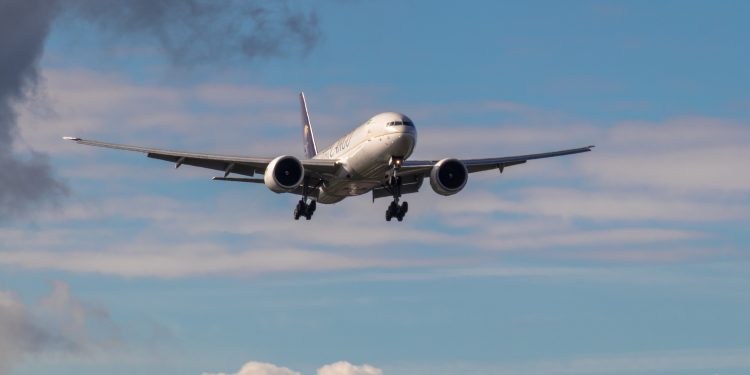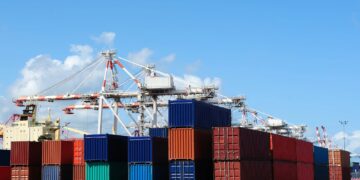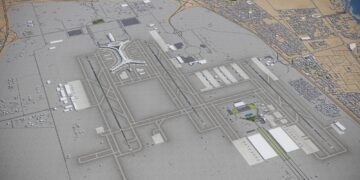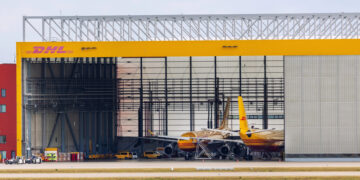The air freight industry within Saudi Arabia is currently witnessing a significant upsurge, playing a pivotal role in the nation’s economic diversification and growth. During the first quarter of 2024, Saudia Cargo, the nation’s flagship air freight carrier, reported an impressive 20% rise in cargo volume. This upturn is a clear indication of the heightened demand within the sector and the successful outcomes of strategic enhancement initiatives that aim to establish the Kingdom as a primary logistics hub.
Located at the junction of Asia, Africa, and Europe, Saudi Arabia benefits from a strategic geographical position that enhances its global logistics network. The country has capitalized on this advantage by executing extensive strategies to amplify its air freight capabilities. A cornerstone of these initiatives is the Saudi Aviation Strategy, which is a component of the broader Vision 2030. This strategy involves a substantial $100 billion investment to increase global connectivity to more than 250 destinations, triple passenger traffic annually, and elevate air freight volumes to 4.5 million tons by the year 2030.
One of the main catalysts for the sector’s robust growth is the establishment of strategic alliances and partnerships. Saudia Cargo’s collaboration with key global logistics entities such as Worldwide Flight Services (WFS) and the Cainiao Group, Alibaba’s logistics arm, has significantly enhanced operational capacities and broadened its reach in the burgeoning e-commerce sphere. These joint efforts have led to the creation of innovative e-commerce logistics gateways, which have in turn improved the efficacy and dependability of cross-border trade. The alliances also include direct cargo flights connecting Hong Kong to Riyadh and Liege, streamlining e-commerce shipments between Asia and Europe.
These partnerships have further facilitated the setting up of sophisticated logistics centers that are equipped with state-of-the-art technology, including automated guided vehicles (AGVs), cutting-edge PDAs, digital dashboards, and real-time tracking systems. These technological advancements ensure excellence in service delivery and facilitate instantaneous processing of information, significantly enhancing the logistics operations’ efficiency and customer satisfaction.
In addition to these collaborations, Saudia Cargo’s strategic foray into major international markets has been a significant driver of its expansion. A notable move in this direction is the inauguration of bi-weekly flights to Shenzhen, China, from March 2024. Shenzhen is a key e-commerce center, housing giants such as Alibaba, Temu, and TikTok, which underscores the importance of this market for air freight services. Saudia Cargo’s new routes between Shenzhen and Riyadh support the seamless transport of goods and leverage the e-commerce boom, thereby fostering stronger trade relations between Saudi Arabia and China and cementing Riyadh’s status as a central logistics hub in the region.
Furthermore, Saudi Arabia is making significant investments in upgrading its airport infrastructure and expanding its aircraft fleet to support its ambitious goals. The inclusion of new Boeing 747s into Saudia Cargo’s fleet enhances operational efficacy and ensures timely global deliveries. The development of state-of-the-art cargo facilities and the establishment of two prominent global long-haul connecting hubs in Riyadh and Jeddah are instrumental in optimizing cargo operations and facilitating smooth goods movement, contributing to the nation’s economic diversification objectives.
The exponential growth of the air cargo sector has far-reaching effects on Saudi Arabia’s economy, contributing significantly to its non-oil economic sector. This is essential as the Kingdom endeavors to lessen its dependence on oil revenue. The air freight volume increase supports the exportation of non-oil commodities, bolstering various industry sectors. For example, Saudia Cargo’s expansion and partnerships have substantially elevated the export of e-commerce goods, perishables, and pharmaceuticals.
This expansion also paves the way for substantial job creation. The development of logistics centers, as seen in the collaboration between DSV and NEOM, is expected to generate upwards of 20,000 jobs, encompassing a wide spectrum of roles, from ground handling to high-tech positions in digital logistics management and supply chain optimization. This employment growth is crucial for the Kingdom, accommodating its burgeoning population and reinforcing local economies.
The augmentation of the air cargo sector also enhances Saudi Arabia’s global connectivity, thus facilitating more efficient trade routes. This connectivity not only benefits Saudi businesses but also attracts international companies seeking to utilize the Kingdom’s strategic location for their logistics needs. Moreover, the sector’s growth fosters technological innovation in logistics, featuring advanced technologies that improve the efficiency, reliability, and transparency of operations, positioning Saudi Arabia at the forefront of the global logistics industry.
As Saudi Arabia advances towards Vision 2030, the prospects for the air cargo sector appear exceedingly bright, propelled by strategic initiatives, technological advancements, and significant investments. The National Aviation Strategy (NASS) is poised to revolutionize the aviation sector, supported by major infrastructure projects like the construction of a new international airport in Riyadh and the enhancement of existing airports.
The integration of cutting-edge technologies is anticipated to transform the air cargo industry, with a focus on digitalization and artificial intelligence (AI) to enable real-time data processing. The Kingdom’s commitment to sustainability is evident in its investment in technologies and practices that reduce carbon emissions and promote environmental responsibility, including the development of sustainable aviation fuels and green logistics solutions.
The growth of the air cargo sector is expected to create thousands of jobs and support economic diversification. The development of logistics hubs and special economic zones, such as NEOM, will attract global investments and foster innovation in the logistics industry. These developments will provide employment opportunities and contribute significantly to the Kingdom’s GDP.
The Saudi air cargo sector’s future is marked by continued significant growth, crucial to the nation’s economic diversification and development strategies under Vision 2030. With the Kingdom’s advantageous geographic location and substantial investments in infrastructure and technology, Saudi Arabia is enhancing its air cargo capabilities, cementing its role in the global logistics landscape, and ensuring a bright future for the sector and the nation’s economy.









